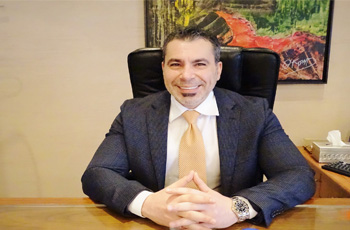 Dubai, UAE, December 15th, 2014: Dubai’s medical tourism strategy and an increasing number of local hospitals benchmarking their facilities and services against global best practices have added momentum to the emirate’s emergence as a leading healthcare destination.
Dubai, UAE, December 15th, 2014: Dubai’s medical tourism strategy and an increasing number of local hospitals benchmarking their facilities and services against global best practices have added momentum to the emirate’s emergence as a leading healthcare destination.
“In terms of infrastructure, connectivity and qualified personnel Dubai was already well-positioned to attract a major share of the healthcare tourism traffic. The medical tourism strategy has now sought to consolidate such advantages into evolving an internationally competitive healthcare ecosystem, with clearly defined targets,” commented Dr.Haider Al Zubaidy, CEO, Canadian Specialist Hospital – one of the leading private sector hospitals in the UAE.
Dubai’s medical tourism strategy, announced earlier this year, looks at attracting 500,000 medical tourists by 2020, the year in which the city would host the World Expo. The target for the first phase is to bring in 170,000 medical tourists by 2016, a jump of over 50,000 from the 107,000 arrivals in 2012.
Public and private healthcare facilities and government departments are working together to facilitate entry and best-in-class treatment in a range of medical specialties for patients from across the world, particularly from the GCC, South Asia and CIS (Commonwealth of Independent States) countries.
“Hospitals in Dubai are competing with the best in the world in providing comprehensive primary-to-tertiary level care. All these facilities have a multinational workforce, including experienced doctors from internationally renowned centres of excellence. More importantly, there is a growing focus on patient safety, quality, excellence and transparency,” said Dr.Haider.
Dubai has over 22 hospitals, including CSH, accredited by the Joint Commission International (JCI), the world’s leading accreditor of hospitals. CSH, first accredited in 2011, was recently reaccredited by JCI on completion of the first three-year term.
“JCI accreditation requires exceptional standards in patient safety, particularly reduction of medical errors, as well as consistent commitment to quality and excellence in services and operations. Such reliable metrics on international standards and quality are important for people looking for the best available treatment away from home,” added Dr.Haider.
CSH is already receiving a significant number of patients every month from Eastern Europe, Africa and GCC. Dr.Haider said that, “the medical tourism strategy will enable CSH to extend its healthcare model to a wider international patient community”.
“The medical tourism strategy identifies orthopaedic and sports medicine, plastic surgery, ophthalmology, dental procedures, dermatology, preventive medicine and skin care as areas in which Dubai can provide competitive and cost-effective treatment options to patients from abroad. CSH has demonstrated excellence and resources in these disciplines,” said Dr.Haider.
Under an agreement between Dubai Health Authority (DHA) and the General Directorate of Residency and Foreigners Affairs (GDRFA), people seeking medical care in Dubai can avail of three-month, twice-extendable visas. DHA is also working with government bodies concerned to offer tourist packages and visas as part of the medical tourism strategy.
“DHA has also announced plans to rate hospitals in the emirate based on their overall performance and hospitality. It will encourage sustained improvements in the quality of care and services provided by hospitals and ensure that Dubai gets its deserved attention as a healthcare destination,” Dr.Haider concluded.

